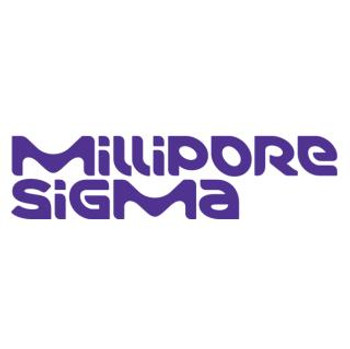Description
Ammonium bicarbonate, 500G
ReagentPlus, ≥99.0%
Synonym(s):
Ammonium hydrogen carbonate
Linear Formula:
NH4HCO3
CAS Number:
1066-33-7
Molecular Weight:
79.06
Beilstein:
4329606
EC Number:
213-911-5
MDL number:
MFCD00012138
eCl@ss:
38020216
PubChem Substance ID:
329770884
NACRES:
NA.21
PROPERTIES
vapor density
2.7 (vs air)
Quality Level
200
vapor pressure
513 hPa ( 50 °C)
67.1 hPa ( 20 °C)
product line
ReagentPlus®
assay
≥99.0%
form
powder or crystals
pH
7-8.5 (25 °C, 79.1 g/L)
SMILES string
N.OC(O)=O
InChI
1S/CH2O3.H3N/c2-1(3)4;/h(H2,2,3,4);1H3
InChI key
ATRRKUHOCOJYRX-UHFFFAOYSA-N
DESCRIPTION
General description
Ammonium bicarbonate is an inorganic salt commonly used in the food industry. It can be generated by the interaction of gaseous carbon dioxide and aqueous ammonia.[1] The addition of ammonium bicarbonate to microbial fuel cells (MFCs) has been reported to improve its functioning by altering the porosity and pore distribution of catalyst layers.[2] A recent study reports the use of bubble column evaporator (BCE) based analysis of its thermal degradation in aqueous solution.[3]
Application
Ammonium bicarbonate (AMBIC) was used in the following studies:
- To derivatize histone proteins from human monocyte-derived macrophages (MDM) by propionylation.[4]
- Destaining of silver-stained proteins in polyacrylamide gel bands during the peptide mass profiling using a mass spectrometer.[5]
- Digestion of proteins isolated from Xenopus egg extracts in coomassie blue-stained gel bands during the analysis of microtubule-binding proteins.[6]
Packaging
25, 500 g in poly bottle
1 kg in poly bottle
Legal Information
ReagentPlus is a registered trademark of Sigma-Aldrich Co. LLC
SAFETY INFORMATION
Signal Word
Warning
Hazard Statements
H302
Precautionary Statements
P264 - P270 - P301 + P312 - P501
Hazard Classifications
Acute Tox. 4 Oral
Storage Class Code
11 - Combustible Solids
WGK
WGK 1





